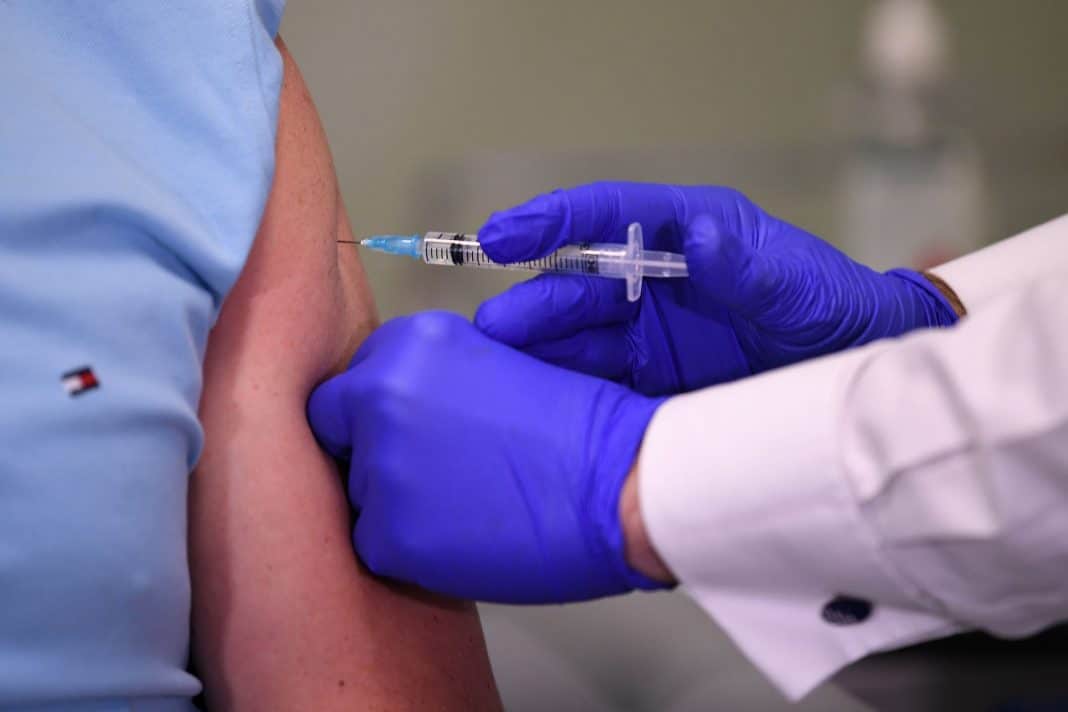Australia will soon have access to up to one million doses of the coronavirus Pfizer vaccine a week, significantly ramping up the supply previously available.
The federal government update means supply will increase from July 19, from an average of 300,000 to 350,000 vaccines a week in May and June.
“Due to the nature of pandemic vaccine supply, these numbers are subject to change and will be confirmed closer to the delivery date,” a spokesman said on Friday.
In total, Australia received 1.7 million Pfizer doses in June and is now expected to receive 2.8 million in July, and more than 4.5 million in August.
Meanwhile, Australians under lockdown in NSW have been urged to get their second AstraZeneca dose within eight weeks of their first jab.
Sydney is in the grips of an ongoing outbreak, with NSW reporting 38 new local coronavirus cases as the city and surrounds prepare for at least a third week of stay-at-home orders.
A 12-week gap between AstraZeneca jabs has been recommended as the most effective way to protect people.
But Prime Minister Scott Morrison wants people in the worst-affected areas who have received a first jab to make second dose appointments closer to eight weeks.
This was consistent with the advice of the national expert immunisation panel ATAGI, he said on Thursday.
In the three Sydney councils areas with the most infections, about half of those aged over 70 have received a first dose.
An extra 300,000 AstraZeneca – which is recommended for people over 60 – and Pfizer vaccines will be made available for NSW.
But Nancy Baxter, the head of the University of Melbourne’s school of population and global health, said 12 weeks remained the recommended AstraZeneca interval.
“We don’t really know how effective it is at eight weeks,” she told the ABC.
The clinical epidemiologist says the Australian Technical Advisory Group on Immunisation should be advising on vaccines, not Mr Morrison.
“It’s not time for politicians to be making recommendations about vaccination,” she said.
Epidemiologist Mary-Louise McLaws said the first AstraZeneca dose offered 33 per cent protection, while a second jab increased the figure to 60 per cent.
Professor McLaws supports bringing second doses forward but said the need for a booster shot later was likely.
“If we start it moving away from that 12 weeks then your antibody response may not be as good as it could be,” she told the ABC.
“But given that we are in dire straits at the moment with Delta, we don’t want it to go across any state borders, we don’t want to go to the elderly, it’s a good idea.”
State and territory leaders will meet with the prime minister during a virtual meeting on Friday with the rollout remaining high on the agenda.
National cabinet will also discuss Australian Health Protection Principal Committee research on alternative quarantine arrangements for vaccinated Australians.
Agreement is expected on mandatory jabs for disability support workers after the AHPPC recommended following a similar order imposed on aged care workers.
The prime minister will also talk about vaccinating fly-in, fly-out workers with premiers and chief ministers.
AAP
Read more:



